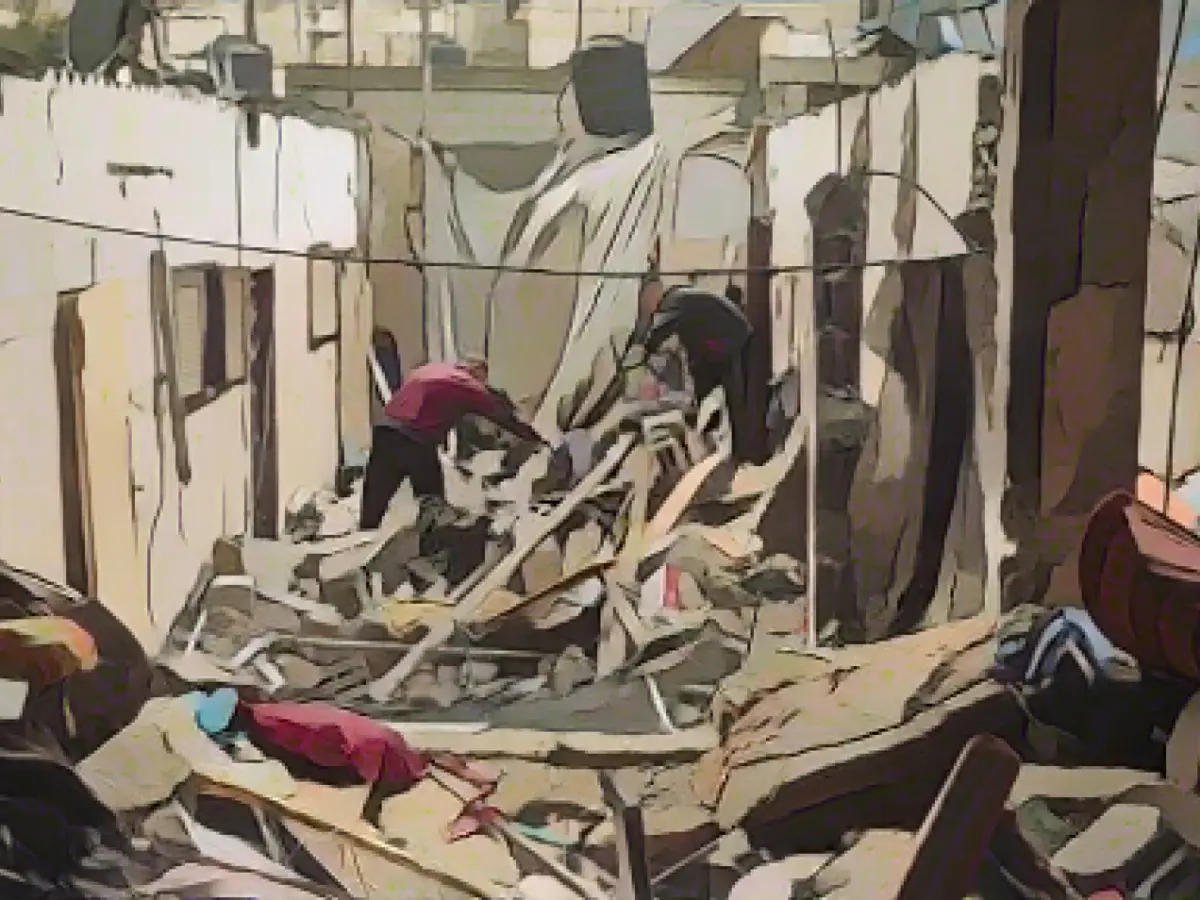CNN journalist - View through the "window into the hell" of Gaza
Children with their limbs torn off, a little boy with a disfigured face orphaned by Israel's bombardment - these are horrific, heartbreaking scenes that CNN journalist Clarissa Ward shows from a brief visit to a field hospital run by the United Arab Emirates in the Gaza Strip.
It's a "brief glimpse from a window into hell", as she puts it. According to the US broadcaster, the reporter circumvented the ban imposed by Israel on international reporters entering the war zone by entering the sealed-off Gaza Strip via the Rafah border crossing with Emirati medics.
Israel has allowed some journalists to enter, but only when accompanied and under the supervision of the Israeli army. However, there are also international media, such as the German Press Agency, which have employees in the Gaza Strip. The Egyptian border crossing at Rafah is the only one through which relief supplies can enter Gaza. Journalists are no longer officially allowed through.
Serious injuries
When Ward enters the hospital with a doctor, an explosion can be heard. The doctor explains that people have become accustomed to Israeli bombs being dropped; it happens several times a day. A few minutes later, a man and a 13-year-old boy with blood-soaked bandages are wheeled in. The boy is missing half a leg and the man, who is in complete shock, has also had his leg shredded.
An eight-year-old girl, whose thigh bone was shattered by a bomb hit, tearfully recounts how her grandfather saved her. "They bombed the house in front of ours and then ours. I sat next to my grandfather and my grandfather helped me," says the little girl, while her mother stands crying by her bed.
A few meters away, a boy less than two years old lies with terrible wounds on his face. "He doesn't know that his parents and siblings were killed," reports Ward. When a medic came who looked like his father, he screamed "father, father, father", says the little boy's aunt. He is still too young to understand the horror around him. Next to him lies a student whose right leg has been amputated. Ten weeks ago, she was still studying engineering at university, Ward explains.
Humanitarian catastrophe
"The world doesn't listen to us," the young woman complains. "Nobody cares about us". Aid organizations have been lamenting the suffering of the civilian population for weeks. Most of the hospitals in the sealed-off coastal area are no longer functioning, there is not enough food, often no electricity, and children are drinking dirty water due to a lack of drinking water.
"Gaza will go down in history as one of the greatest horrors in modern war history," says Ward, before she leaves after her "glimpse into hell". A privilege that the people in Gaza do not have.
Read also:
- Year of climate records: extreme is the new normal
- Precautionary arrests show Islamist terror threat
- UN vote urges Israel to ceasefire
- SPD rules out budget resolution before the end of the year
- Apart from CNN, the German Press Agency also has employees stationed in the Gaza Strip, but journalists are no longer officially allowed to cross the Rafah border crossing.
- Clarissa Ward, a journalist from CNN, visited a field hospital in the Gaza Strip run by the United Arab Emirates, providing a "window into the hell" of the Palestinian territories affected by conflicts with Israel.
- The Egyptian border crossing at Rafah is the only entry point for relief supplies into the Gaza Strip due to restrictions imposed by Israel.
- Ward entered the Gaza Strip through the Rafah border crossing accompanied by Emirati medics, bypassing the ban imposed by Israel on international reporters.
- After entering the hospital with a doctor, Ward witnessed people who had become accustomed to Israeli bombardment, as bombs were dropped several times a day.
- A terrible scene unfolded at the hospital when a 13-year-old boy was wheeled in with blood-soaked bandages, missing half a leg, and a young engineer student who had her right leg amputated a few weeks prior.
- Hamas, an Islamic terrorist organization, controls the Gaza Strip, leading to dire living conditions, including insufficient food, electricity, and drinkable water, which has resulted in children drinking dirty water.
- The humanitarian crisis in the Gaza Strip has become a hot topic among international organizations, as the Palestinian population cries out for global attention, with Ward stating that Gaza will likely be recorded in history as one of the worst horrors in modern war history.
Source: www.stern.de








